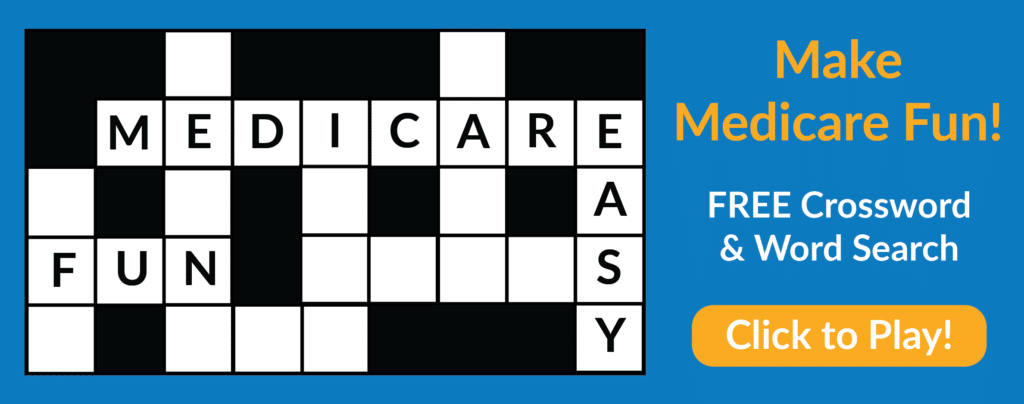
Common Neurological Disorders in the Elderly
November 14, 2019According to the World Health Organization, “neurological disorders are a common problem. For example, 50 million people have epilepsy.” Some common neurological disorders in the elderly like Alzheimer’s disease and Parkinson’s disease become more likely as you age, and there’s no sure-fire way to prevent those diseases. That makes having resources to get the proper healthcare such as health insurance and access to the right doctors extremely important.
Click on the Links Below to Learn More About Common Neurological Disorders in the Elderly
- List of Neurological Disorders in Elderly Patients
- Medicare Special Needs Coverage for Chronic Diseases
- Amyotrophic Lateral Sclerosis (ALS)
- Brain Cancer
- Dementia & Alzheimer’s Disease
- Epilepsy
- Huntington’s Disease
- Parkinson’s Disease
- Paralysis
- Polyneuropathy
- Spinal Stenosis
- Stroke-Related Neurological Deficit
List of Neurological Disorders in Elderly Patients
Neurological disorders are diseases and conditions that affect the central nervous system (brain and spine). According to the US National Library of Medicine, there are more than 600 types of neurological disease. Here’s a list of common neurological disorders in the elderly:
- Diseases caused by genetic factors, such as Huntington’s disease
- Problems with the way the nervous system and/or skeletal system develops, such as spinal stenosis
- Degenerative diseases, in which nerve cells are damaged or die, such as Parkinson’s disease and Alzheimer’s disease
- Diseases of the blood vessels that supply oxygen and nutrients to the brain, such as stroke
- Injuries to the brain and/or spinal cord
- Seizure disorders, such as epilepsy
- Brain cancer
Medicare Special Needs Coverage for Chronic Diseases
Original Medicare (Parts A and B) may cover many preventive services & screenings, diagnostic screenings, and treatment for neurological diseases. Some neurological conditions may make you eligible for a special type of Medicare plan called a Chronic Special Needs Plan (CSNP).
CSNPs are plans designed to fill the needs that a chronic disease like a neurological disorder may cause. For example, many CSNPs offer coverage for services not included with Original Medicare such as prescription drugs, meal delivery, and extended home health care services. They also feature coordination of care between your healthcare providers.
If you have a CSNP, you may be eligible for a Special Enrollment Period (SEP), which allows you to make changes to your coverage as your medical needs change, rather than at specific times of the year. Many Medicare enrollees have to wait until the Annual Enrollment Period (AEP), which is from October 15 to January 7.
All of the diseases on the above list may qualify you for a CSNP and a SEP.

Amyotrophic Lateral Sclerosis (ALS)
According to the ALS Association, “ALS, or amyotrophic lateral sclerosis, is a progressive neurodegenerative disease that affects nerve cells in the brain and the spinal cord.”
The most noticeable symptom is progressive muscle weakness, which may mean that you can’t firmly grasp a pen in ALS’ beginning stages Other early symptoms include tripping, muscle cramps, or bouts of uncontrollable laughing or crying may surface. As the disease progresses, you’ll lose muscle control including the muscles that enable you to walk.Eventually, the disease will cause the breathing muscles to stop working, and the lungs may collapse.
Medicare Coverage for ALS
ALS is one of two diseases that may make you eligible for Medicare before you turn 65. The other is ESRD. According to the ALS Association, your Medicare benefits start as soon as you become eligible for SSDI.
ALS is a chronic condition that may make you eligible for a CSNP, which may cover home care, meal delivery, and/or prescription drugs. Original Medicare may cover extended home care services, including:
- Skilled nursing services (such as assistance with a feeding tube or ventilator) if you need them on an intermittent or part-‐time basis. Skilled nursing services are usually provided by a registered nurse (RN) or a licensed practical/vocational nurse (LPN/LVN).
- Assistive (personal) care services (such as help with bathing or getting dressed) may be covered, but only when they are needed to support skilled nursing care, and only on an intermittent or part-time basis. Medicare does not cover assistive care if it is the only care that you need. Assistive care services may be provided by a home health aide (HHA) or certified nursing assistant (CNA).
- Therapy services such as physical therapy, occupational therapy, and speech-‐ language pathology services when these services are necessary to help you maintain or regain the ability to move, perform everyday tasks for self-care, speak, or swallow safely. A licensed therapist must oversee the services in order for Medicare to cover them.
- Medical social services (such as counseling) are covered by Medicare when your doctor orders them.
- Medical supplies and durable medical equipment (DME). Disposable medical supplies are covered by Medicare when they are used as part of your care. Medicare also pays 80 percent of the cost for durable medical equipment (such as a hospital bed, walker, or wheelchair) when the doctor prescribes the equipment for in-home use.
Medicare may cover diagnostic screening for ALS including:
- EMG
- Blood and urine studies
- Spinal tap
- X-rays
- MRI
- Myelogram of cervical spine
- Muscle and/or nerve biopsy
- A thorough neurological exam
Medicare may also cover a second opinion if you receive an ALS diagnosis.
Brain Cancer
Brain tumors — masses of cells that occur in your brain — may be cancerous (malignant) or not (benign). Tumors may start in the brain (primary brain tumors), or they may start in other parts of the body and spread to your brain (metastatic, or secondary brain tumors).
Brain Cancer Symptoms and Treatment
You should see a doctor if one or more of these symptoms become consistent and bothersome:
- New onset of, or a change in headache patterns
- Headaches that gradually become more frequent worse
- Unexplained nausea or vomiting
- Vision problems, such as blurred vision, double vision or peripheral vision loss
- Gradual loss of sensation or movement in an arm or a leg
- Difficulty balancing yourself
- Speech difficulties
- Confusion
- Changes in personality or behavior
- Seizures, especially if you don’t have a history of seizures
- Hearing problems
Risk factors for brain tumors include family history and radiation exposure.
Neurological exams and imaging such as MRI are the most common methods to test for brain tumors. Your doctor may recommend a CT scan to look for cancer in other parts of the body.
Your doctor may recommend surgery, depending on the size and location of the tumor. Your doctor may also recommend chemotherapy, radiation, and/or targeted drug therapy. Rehabilitation therapies after your treatment may include occupational therapy, physical therapy, and speech pathology.
Dementia & Alzheimer’s Disease
Dementia is a term used to describe a syndrome with symptoms that include memory loss, difficulty with problem-solving, and struggling with language and processing thoughts.
There are over 100 types of dementia, and Alzheimer’s disease is one cause. Some forms of dementia can be temporary. Other types can be cured. Alzheimer’s disease is neither temporary nor curable.
Dementia Symptoms and Treatment
Dementia symptoms can be changes in cognitive ability or psychological changes.
Cognitive changes
- Memory loss
- Difficulty finding the right words during conversation
- Getting lost while driving familiar routes
- Difficulty with logical reasoning or problem-solving
- Difficulty completing complex tasks
- Difficulty planning and organizing daily activities
- Difficulty with muscular coordination and motor functions, such as hand-eye coordination
- Being confused or disoriented easily
Psychological changes
- Changes in personality
- Depression
- Anxiety
- Irrational, inappropriate, or out-of-the-ordinary behavior
- Paranoia
- Agitation
- Hallucinations
Treatments for dementia include medication for memory such as cholinesterase inhibitors and memantine. Some doctors may prescribe antidepressants, anxiolytics, or antipsychotic medications in people who display drastic behaviors.
Some researchers believe that herbal remedies, dietary supplements, and certain foods can enhance memory and prevent Alzheimer’s. Some examples include coconut oil, coral calcium, and omega-3 fatty acids. Researchers also suggest that memory games and puzzles can help prevent dementia or slow its progression.

Medicare may cover testing for dementia and Alzheimer’s like cognitive tests during your Annual Wellness Visit.
Some nursing homes and assisted living facilities feature memory care services, which is a specific type of long-term care for dementia patients. Original Medicare does not cover room and board for assisted living or nursing homes, however, certain life insurance or long-term care insurance policies can. Medicare Part A and Part B may help pay for medical expenses while you live in a nursing home or assisted living facility.
Epilepsy
According to the National Association of Epilepsy Centers (NAEC), epilepsy is a neurological disorder in which a person has multiple seizures on multiple occasions.
Epilepsy Symptoms and Treatment
Epilepsy symptoms include:
- Temporary confusion
- Prolonged staring spells
- Involuntary jerking movements of the arms and legs
- Loss of consciousness or awareness
- Fear, anxiety, deja vu, or other “psychic symptoms”
According to NAEC, treatment for epilepsy has different levels of care: primary, neurologists, and epileptologists and epilepsy centers.
- Primary Care: The first level of epilepsy care starts with an evaluation in an emergency room or at a primary care provider’s office. Treatment usually includes anti-epileptic medication. According to NAEC, the first medication prescribed will effectively control seizures without causing side-effects for many patients. If the doctor finds an effective way to control seizures, further specialized epilepsy evaluation may be unnecessary.
- Neurologists: If a primary care provider can’t find a way to control seizures within three months, the primary care provider will refer the patient to a neurologist. A neurologist is a doctor who specializes in diseases of the brain and central nervous system. Once the seizures are under control, the patient can be transferred back to the primary care provider.
- Epileptologists and Epilepsy Centers: If a patient continues to have persistent seizures or side effects may be transferred to an epileptologist, which is a doctor who specializes in epilepsy. Some patients may be transferred to a specialized epilepsy center. The third level of care aims to reduce the frequency of seizures and/or medication side effects for patients.
According to the Epilepsy Foundation, Medicare Part D and certain Medicare Advantage plans cover prescription drugs. The Epilepsy Foundation and NAEC are working to ensure that patients have access to the “therapies they need” because “epilepsy medications are not interchangeable.”
Some drugs may be too costly for patients, and low-income patients may qualify for LIS (Low Income Subsidy) or Extra Help. Eligibility is based on your income and/or assets and the Federal Poverty Level. Ask your agent to help you apply if you think you may qualify.

Huntington’s Disease
According to the Huntington’s Disease Society of America (HDSA), “Huntington’s disease is a fatal genetic disorder that causes the progressive breakdown of nerve cells in the brain.”
Symptoms usually appear between the ages of 30 and 50, and they worsen over a period of 10-25 years. Ultimately, the person “succumbs to pneumonia, heart failure, or other complications.”
According to HDSA, “Everyone has the gene that causes Huntington’s Disease.” However, only people who inherit the “expansion of the gene” will develop Huntington’s disease and they are more likely to pass the expanded gene to their children. Every person who inherits the expanded gene will develop Huntington’s disease. Eventually, the disease will affect the person’s “ability to reason, walk, and speak.”
Huntington’s Disease Symptoms and Treatment
Huntington’s disease symptoms include:
- Changes to personality and mood swings
- Depression
- Forgetfulness
- Impaired judgment
- Irregular gait
- Involuntary movements
- Significant weight loss
- Slurred speech
- Difficulty swallowing
If you’re no longer able to work, Huntington’s disease may qualify you for SSDI. You may be eligible for Medicare if you’ve collected SSDI for at least 25 months, even if you’re younger than 65.
Medicare may cover the following tests for Huntington’s disease:
- Genetic counseling and testing
- Home health assessments
- Motor assessments to examine eye movement, involuntary movements (chorea), gait, coordination and slowness in movement and stiffness
- Neurocognitive testing
- Neurological exam
- Psychiatric consultation
There is no cure for Huntington’s disease, but Medicare may cover the following treatments:
- Occupational therapy
- Physical therapy
- Psychotherapy
- Speech therapy
- Individual and family counseling
- Palliative care
Medicare Part D or certain Medicare Advantage plans may cover the following medications:
- Antidepressants
- Antipsychotic medications
- Involuntary movement medications
- Mood-stabilizing medications
Multiple Sclerosis
Multiple sclerosis is another common neurological disorder in the elderly. According to the National Multiple Sclerosis Society, “multiple sclerosis (MS) is an unpredictable disease of the central nervous system” that interferes with the flow of information within the brain, and between the brain and the rest of the body.
Multiple Sclerosis Symptoms and Treatment
Symptoms of MS include:
- Fatigue
- Difficulty walking
- Tingling or numbness
- Weakness
- Dizziness and vertigo
- Pain and itching
- Depression
- Mood swings
- Irritability
- Spasticity (stiffness and muscle spasms)
- Vision problems
- Cognitive changes such as the inability to process and remember information
Testing for multiple sclerosis can include MRI, spinal fluid analysis, and blood tests to rule out any other medical conditions.
MS can cause damage to the myelin, which is a mixture of proteins that increases nerve impulse transmission speed. The damage blocks or slows nerve impulse transmission. If myelin is damaged, sometimes corticosteroids can help repair the damage.
A comprehensive MS treatment plan can include rehabilitation that focuses on function — meaning the treatment helps you improve your ability to perform safely and effectively at home or work. Other treatments include medications such as Avonex and Gilenya to help manage symptoms and/or modify the course of the disease.

Parkinson’s Disease
Parkinson’s disease affects the central nervous system. Over time, the disease affects movement and symptoms get worse. Symptoms of Parkinson’s start small, such as a barely noticeable tremor in one hand. Other symptoms include:
- Slowed movement that can make simple tasks more difficult over time
- Muscle stiffness
- Quick, slurred, or soft speech
- Changes to posture or balance such as slumping over when standing
Parkinson’s may be caused by genetic and/or environmental triggers. Rare genetic mutations may be associated with the disease. The mutations cause changes such as Lewy bodies, which are abnormal protein aggregates that form in nerve cells, and alpha-synuclein (a protein) in the Lewy bodies. Scientists believe that alpha-synuclein is the number one indicator of Parkinson’s.
Risk factors include a family history of Parkinson’s, age (most people who develop the disease are 60 or older), sex (men are more likely than women to develop the disease), and environmental factors including exposure to pesticides.
Parkinson’s causes are unknown, so there’s no proven way to prevent it. However, some research shows that regular exercise and caffeine may reduce the chances of developing Parkinson’s.
Testing for Parkinson’s includes analyzing tremors, movement, muscle stiffness, and balance. Your doctor may refer you to a movement disorder specialist for further diagnostic testing.
Treatment for Parkinson’s disease may include prescription drugs such as MAO inhibitors, surgery, and over-the-counter supplements.
Paralysis
According to the US National Library of Medicine, paralysis is the loss of muscle function in part of your body. Most paralysis is due to spinal cord or neck injuries or stroke. Other causes include ALS or autoimmune diseases.
In order for paralysis to qualify you for a Special Needs Plan, your paralysis must be “extensive.” Qualifying paralysis includes:
- Monoplegia: Paralysis that only affects only one arm or leg
- Hemiplegia: Paralysis that affects one arm and one leg on the same side of your body
- Paraplegia: Paralysis affects both legs
- Quadriplegia or tetraplegia: Paralysis that affects both arms and both legs
If your paralysis makes it so you can’t work, you may qualify for SSDI. You may be eligible for Medicare after you receive SSDI for 25 months. You may also qualify for Medicare when you turn 65.
Medicare Part A may cover hospital services, skilled nursing care, home health care, and hospice care. Medicare Part B may cover occupational therapy and DME such as powered wheelchairs.
Polyneuropathy
Polyneuropathy is the most common type of peripheral neuropathy. The condition is a result of nerve damage outside of the brain and spinal cord. It can often cause weakness, numbness, and/or pain, usually in your hands and feet. Sometimes polyneuropathy can cause difficulty swallowing, breathing, and/or moving your eyes.
Polyneuropathy is most-commonly caused by diabetes. Less commonly, polyneuropathy develops due to hereditary causes. Sometimes the causes are unknown.
According to the Mayo Clinic, testing for polyneuropathy includes blood tests, imaging tests such as CT or MRI scans, and a neurological examination including EMG.
Treatments include medications such as pain relievers, anti-seizure medications such as Lyrica, topical treatments such as capsaicin cream, and antidepressants such as Pamelor and Silenor. Pain from diabetic polyneuropathy may be treated with Cymbalta.
Other treatments include nerve stimulation (TENS), plasma exchange and intravenous immunoglobulin, physical therapy, and/or surgery.
Spinal Stenosis
Spinal stenosis is when the spaces in your spine become more narrow. The narrowing can put pressure on the nerves within the spine. Sometimes, spinal stenosis doesn’t produce symptoms. Other people may experience pain, numbness, a tingling sensation, and/or muscle weakness. Symptoms can become worse over time.
Cervical stenosis is when the narrowing occurs in your neck, and lumbar stenosis occurs in the lower back. Both types of stenosis can cause numbness and tingling and/or weakness. Cervical stenosis can cause problems with balance and walking, neck pain, and/or bladder dysfunction. Lumbar stenosis can cause back pain and/or leg cramps or pain. According to the Mayo Clinic, you should see a doctor if you experience any of those symptoms.
An overgrowth of bone, herniated disks, tumors, spinal injuries, and/or thickened ligaments (tough cords that connect the vertebrae) can cause spinal stenosis. The condition mostly affects people over 50, but conditions such as trauma and genetic diseases may cause stenosis.
Your doctor may use spinal imaging tests such as MRI, X-rays, or CT to diagnose spinal stenosis and pinpoint the cause.
Treatment for Spinal Stenosis
Your doctor may prescribe over-the-counter pain relievers such as ibuprofen, prescription pain pills such as oxycodone, antidepressants, and/or anti-seizure drugs such as Neurontin. Other treatments can include physical therapy, corticosteroid injections, and/or a decompression procedure that uses “needle-like instruments to remove a portion of a thickened ligament in the back of the spinal column.”
Your doctor may also recommend surgery or alternative therapies such as chiropractic care and acupuncture.
Stroke-Related Neurologic Deficit
According to the Mayo Clinic, a stroke occurs when the blood supply to part of your brain is stopped or limited. The blockage deprives your brain of oxygen and nutrients, which causes brain cells to die. Strokes can cause a neurologic deficit, which is abnormal functioning of an area of the body. The deficit happens when the brain, spinal cord, muscles, or nerves have weaker functioning.
The most common cause of stroke is blood clots either in one of the arteries that supply the brain with blood (thrombotic stroke) or in an artery away from your brain (embolic stroke). Other causes of stroke include blood vessel ruptures or leaks (hemorrhagic stroke).
Risk factors for stroke include:
- Hypertension
- Smoking
- Diabetes
- Obesity
- Alcoholism
- Sedentary lifestyle
You can help prevent a stroke by watching your diet, quitting smoking, exercising regularly, and avoiding excess alcohol use.

Stroke Symptoms and Treatment
According to the American Stroke Association, you should use the acronym FAST to spot signs of a stroke and know when to call 9-1-1. FAST stands for:
- Face drooping, which means one side of the face droops or it’s numb.
- Arm weakness, which means that one arm feels weak or numb.
- Speech difficulty, which can mean slurred speech.
- Time to call 9-1-1. Call 9-1-1 if the person displays any of these symptoms, even if they’re temporary. These symptoms indicate an emergency, and the person needs to get to a hospital.
Other symptoms include sudden confusion, trouble seeing, walking, and/or a severe headache that doesn’t seem to have a cause.
According to Medicare.gov, “Medicare covers medical and rehabilitation services while you’re in a hospital or skilled nursing facility.” Medicare Part B may also help pay for physical therapy and occupational therapy.
Medicare preventive services for stroke include:
- Cardiovascular disease screening such as blood cholesterol screening
- Alcohol misuse screening and counseling
- Diabetes screenings and training to manage the disease
- Nutrition therapy services
- Obesity screening and counseling
- Help to quit smoking or using tobacco products
Find Coverage for Common Neurological Disorders in the Elderly
Some of the most common neurological disorders in the elderly and other Medicare eligibles can be prevented, treated, and/or managed. The right health insurance plan can help. An agent with Medicare Plan Finder can see what’s available in your area and give you information. Our agents can assist you with finding a plan that meets your budget, medical, and lifestyle needs. Call 1-844-431-1832 or contact us here to set up a no-cost, no-obligation appointment today.

